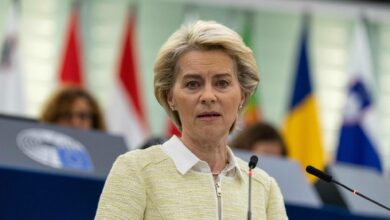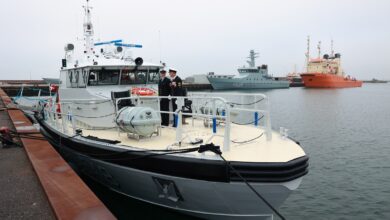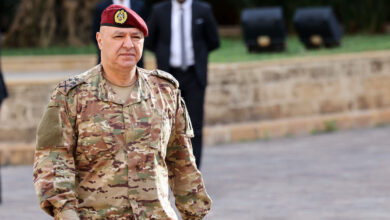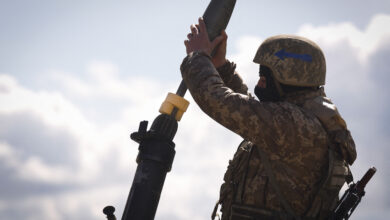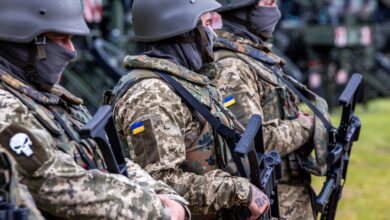EU Moots Creation of 5,000-Strong Rapid Reaction Force
The proposal comes as some member states push for the EU to develop its joint military might.
EU defense ministers will begin discussing Thursday a proposal to create a 5,000-strong joint military force capable of deploying rapidly to crisis zones, a senior EU official said.
The plan — backed by at least 14 of the bloc’s 27 member states — is aimed at bolstering the EU’s military capabilities as part of a review of its overall strategy to be agreed in 2022.
“What we would like to do now, because many countries have supported this idea, is to try to see if we can have 5,000 military personnel — a land component, air component, possibly also maritime component — who will train and make exercises in advance,” the official said Wednesday.
“What we have in mind is… to be able to deploy quickly this response force if for instance you have a legitimate government in a specific country which is afraid of a possible takeover by a terrorist group.”
The proposal — set to be debated at the first in-person meeting of the bloc’s defense ministers in a year — comes as some member states push for the EU to develop its joint military might.
The 14 member states backing the proposal so far are Austria, Belgium, Cyprus, Czech Republic, Germany, Greece, France, Ireland, Italy, Luxembourg, Netherlands, Portugal, Slovenia, and Spain, the official said.
The effort is not the first by the bloc to create a rapid reaction force.
The EU set up a system of “battle groups” in 2007, but none of the 1,500-strong forces were ever deployed amid political and funding wrangling within the bloc.
The official said that the battle groups could form a “nucleus” for the future force, but insisted that discussions were only just beginning.
“What we need now is to build a consensus on this idea,” the official said.
Debate has raged for decades over what role Brussels should play on defense, and EU member nations — most of which are also NATO allies — have often been reluctant to agree on moves to integrate military capabilities.
Ambitions on common defense have gathered steam in recent years.
The departure of Britain from the bloc saw the EU lose some military and diplomatic heft, but also removed from the Brussels conversation a fierce opponent of anything that might lead to a European army.
EU foreign policy chief Josep Borrell — who has called for the bloc to show more muscle — will also push Thursday for an EU training mission to be sent to help the army of violence-wracked Mozambique, the official said.
The mission could be deployed in the second half of this year and see equipment given to Mozambique as it battles jihadists in the north of the country, the official said.







